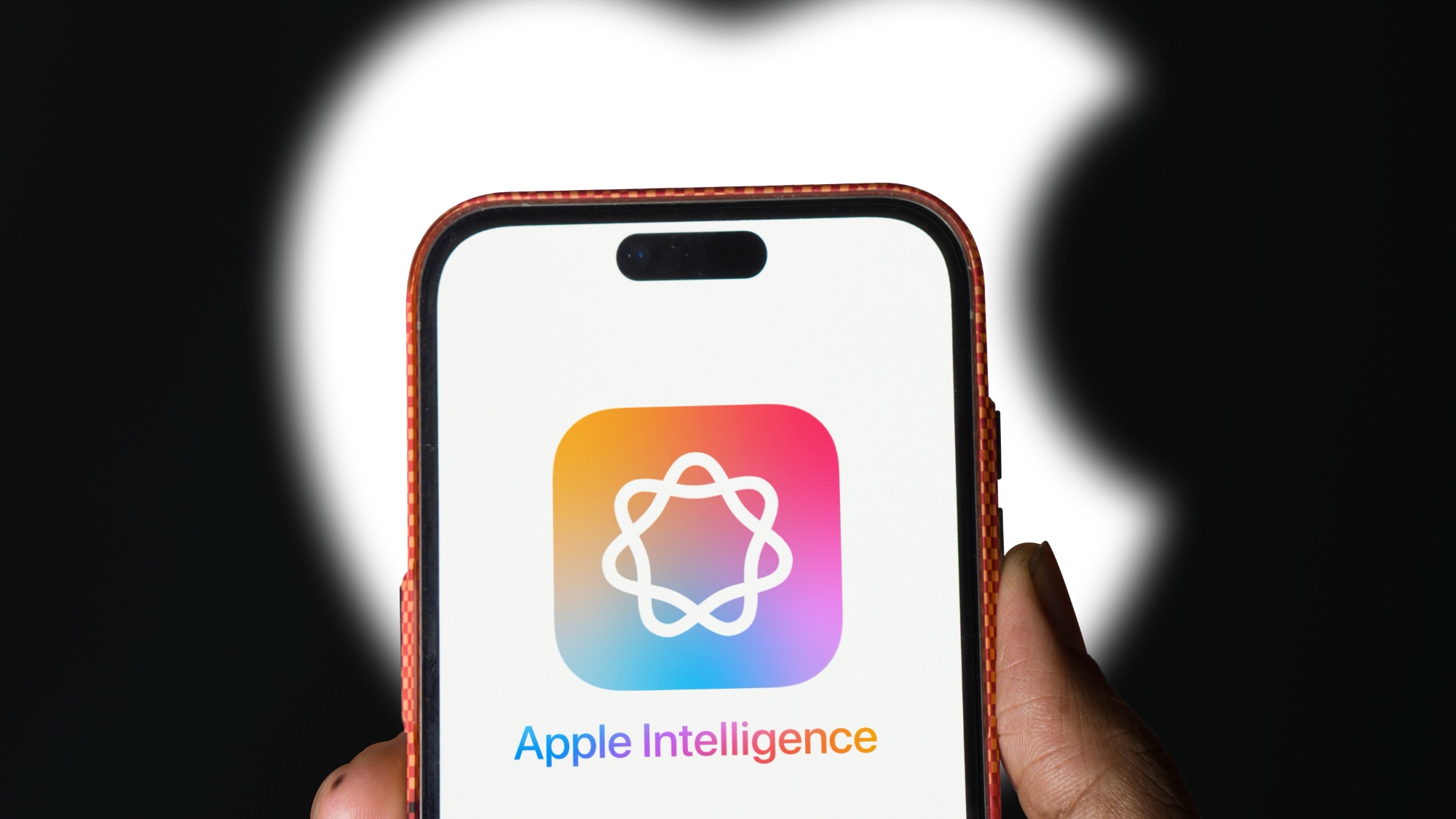How to buy the perfect inkjet printer for you — 4 essential tips
Here's how to save money and find the perfect printer for you
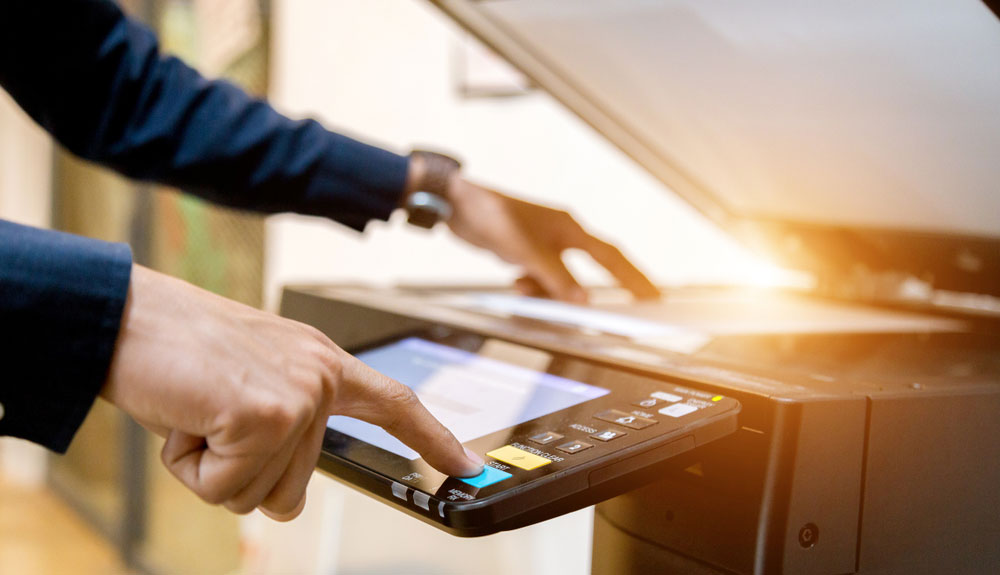
It's difficult choosing a printer.
I would know, I've been reviewing printers professionally for two decades. But if you follow these steps when evaluating potential models, you can find a good bargain that's just the right mix of features and performance.
Many printers today are multifunction devices (also known as all-in-ones) that incorporate a flatbed scanner. This enables them to scan and make copies. Additional features include a duplexer for making two-sided prints and copies, and an automatic document feeder (ADF) for making copies and scans of multipage documents.
These advanced features tend to add to a model's initial price, however, so it's important to only pay for models that do what you want well. After identifying which features are must-haves for you, have a look at our test results—just because a feature sounds great doesn't its performs well. Slow performance or subpar image quality is a big disappointment.
Don't get overwhelmed. Zero in on one or two features that are most important to you and make sure they'll perform as promised."
Performance testing conducted by Tom's Guide helps us figure out which are the best printers on the market, and it's a great resource to weed out bad apples and put you on a path to the perfect printer for your needs. Put simply, we put them through their paces so you don't have to — find more details in the Image Quality and Performance sections below.
Ink costs
After identifying your most important features, compare ink costs.
Inkjet printers are notorious for their expensive ink—but refillable ink tanks and very high yield ink cartridges are changing that equation, delivering much lower ink costs than traditional ink cartridges. Ink tank models tend to cost more up front. But they also tend to come with plenty of ink in the box compared to lower cost models that include only starter cartridges with low page yields. For example, the Epson EcoTank ET-5850 comes with nearly $200 worth of of ink—enough to print 15,000 pages of text or 12,000 color pages. So, let's do some quick math.
Sign up to get the BEST of Tom's Guide direct to your inbox.
Get instant access to breaking news, the hottest reviews, great deals and helpful tips.
Whether a pricier ink tank model is worth it for you, depends on how much you print. Comparing recently tested high-yield models versus lower priced printers, recouping the higher purchase price will likely take at least a thousand pages. How many pages do you print in a month?
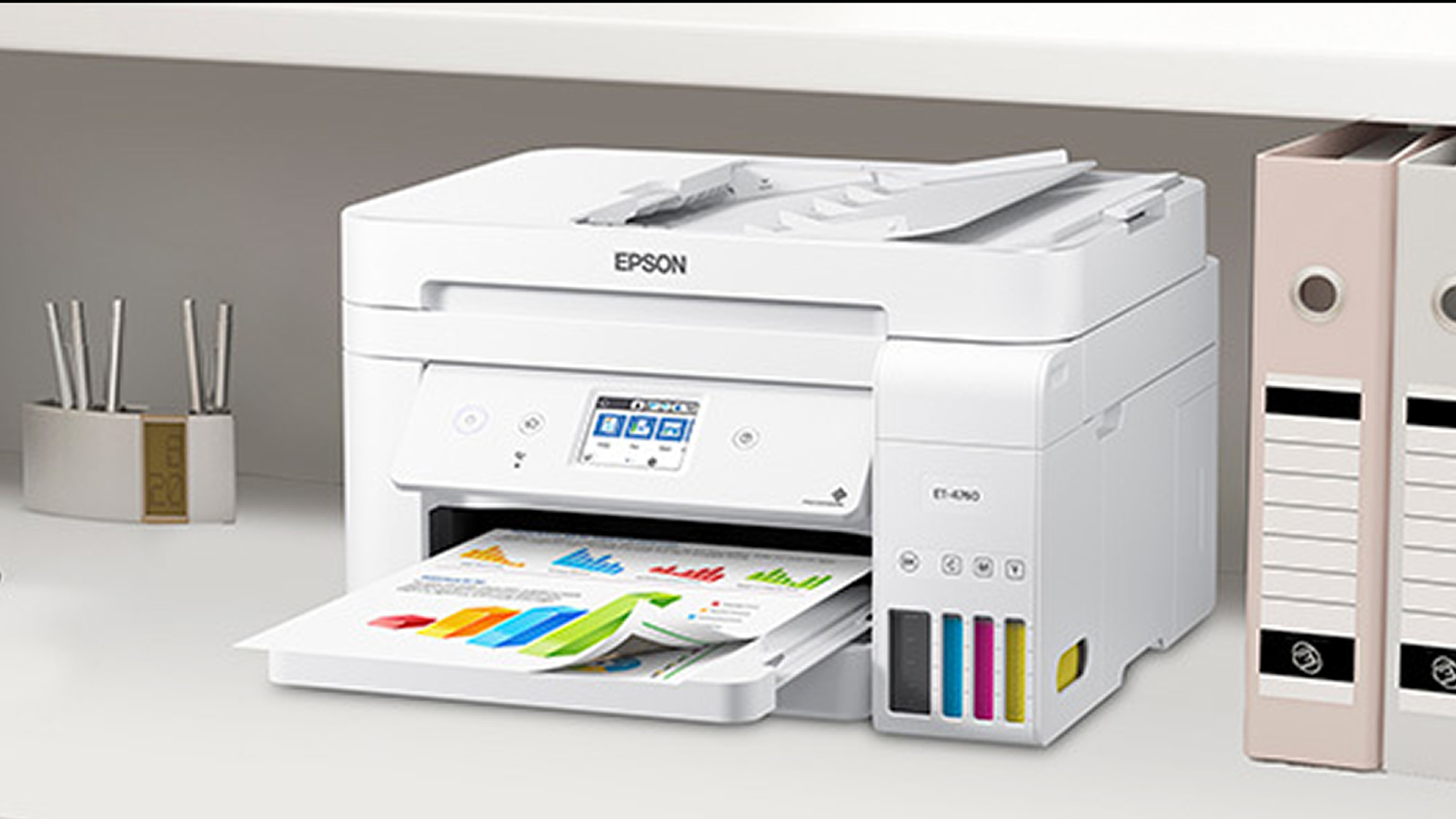
Here's one example: The Epson EcoTank ET-4760 ($449 when reviewed) versus the Brother INKvestment MFC-J4535DW ($250). The Epson (which uses refillable ink tanks) offers low costs per page of just 0.3 cents (text) and 0.9 cents (color). The Brother (which uses very high-yield ink cartridges) also has low costs per page of 1.1 cents (text) and 6 cents (color).
To make up the $199 price premium of the Epson ET-4760, you'd need to print almost 25,000 text pages or nearly 4,000 color pages.
By comparison, most inkjet printers have much higher costs per page. Models we've tested—even when using their high-yield ink cartridges—average 6.2 cents (text) and 15.9 cents (color) per page. Even at that cost per color page, you'd print 2,000 pages on the Epson ET-4760 before recouping a $300 premium over a $150 model that uses standard ink cartridges.
Image quality
Differences in print quality are much less dramatic today then they were in years past. These days, most inkjet printers are able to print both attractive documents with fairly sharp text and appealing graphics on plain paper, as well as attractive photos on glossy paper. The days of testing printers that takes eons to produce a laughably bad photo print are long forgotten.
Still, these subtle differences in color accuracy, saturation and fine details are enough to sway a purchasing decision. That's why at Tom's Guide we put printers through a full battery of tests—to take the guesswork out of choosing the right printer for you.
For example, a pitfall for some models is duplex printing. Some models make two-sided prints that are less attractive than their single-sided prints, with fuzzier text and less-detailed graphics. Sometimes, this lower quality printing only occurred on the backside of our test prints and copies. Similarly, the biggest overall differences in image quality tend to be found in copies, not prints. So, if it's office equipment you're looking for, be sure to check our ratings on copy quality.
Performance
Most printers are not speedy at every task. Many of them perform well on some jobs, but very few are fast across the board. You should focus on what type of printing you'll do most, and prioritize that performance. Speed ratings from manufacturers aren't realistic, however, which is why Tom's Guide tests every printer with the same set of documents and photos—so they're directly comparable, and provide real-world results.
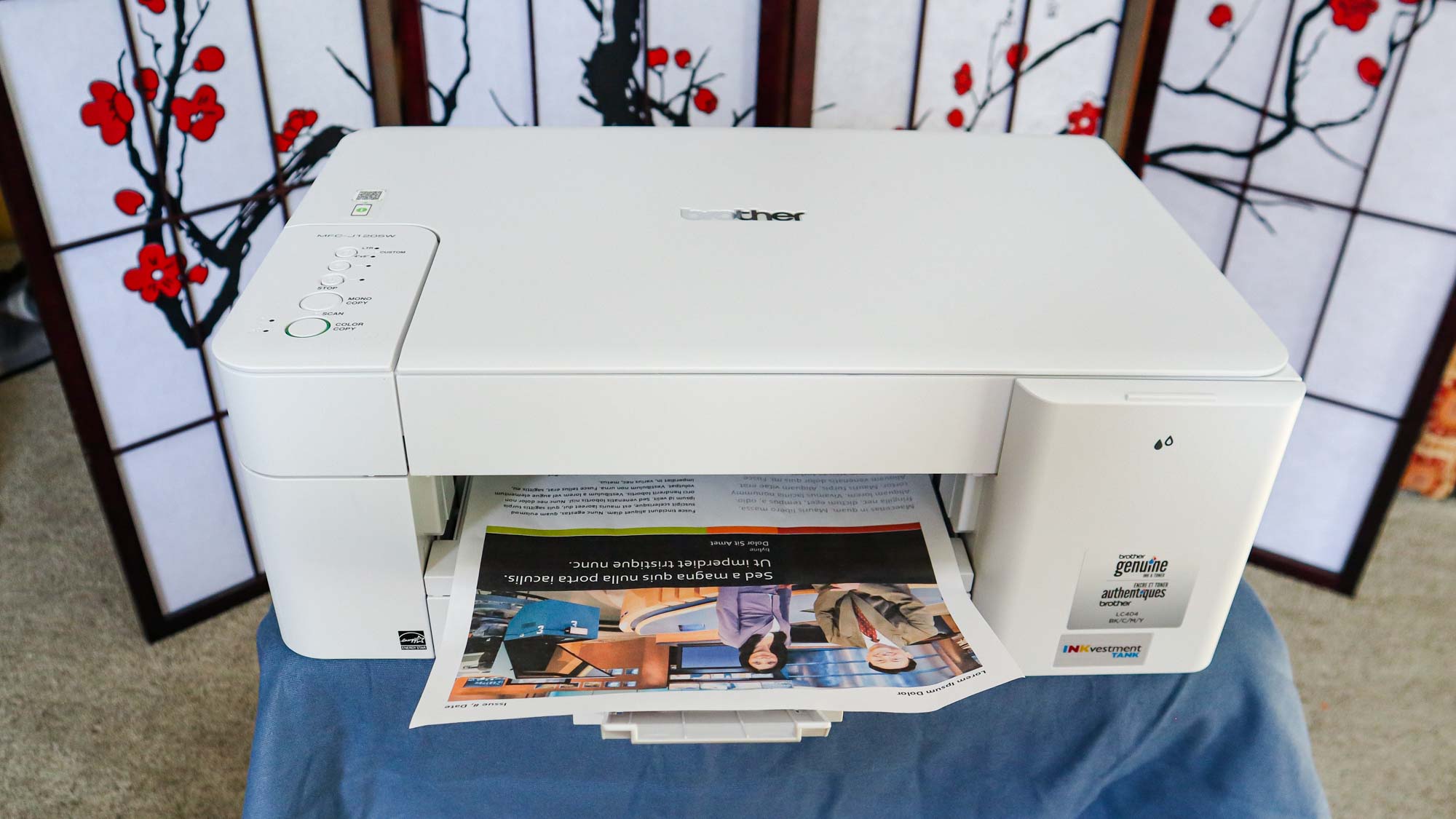
We wouldn't test them if we didn't have to. But models from the same manufacturer often turn in dramatically different results in our tests. For example, the $250 Brother MFC-J4535DW printed a 4x6-inch photo at high resolution in just 1 minute and 8 seconds. Meanwhile, the $130 Brother MFC-J1205w took more than three times as long, taking nearly 4 minutes to print the same snapshot.
Similarly, two-sided printing varies greatly. While the Canon Pixma TS702a ($130) printed two-sided text documents at a modest 3.1 pages per minute (ppm), the Brother MFC-J4535DW ($250) spat them out more than three times faster, at 10.7 ppm.
Features
Today's all-in-one's are highly sophisticated machines that offer variety of capabilities. There are so many models out there—but don't get overwhelmed. Zero in on one or two features that are most important to you and make sure they'll perform as promised.
If you will operate your printer from a PC, there's no need to pay for a touchscreen or for an excess of dedicated buttons on the control panel. But if standalone operation is your preference, be sure it won't be frustrating. I've reviewed models with kludgy touchscreens and menus that aren't intuitive. Other models have physical buttons for copying that are more convenient than having to navigate a menu.
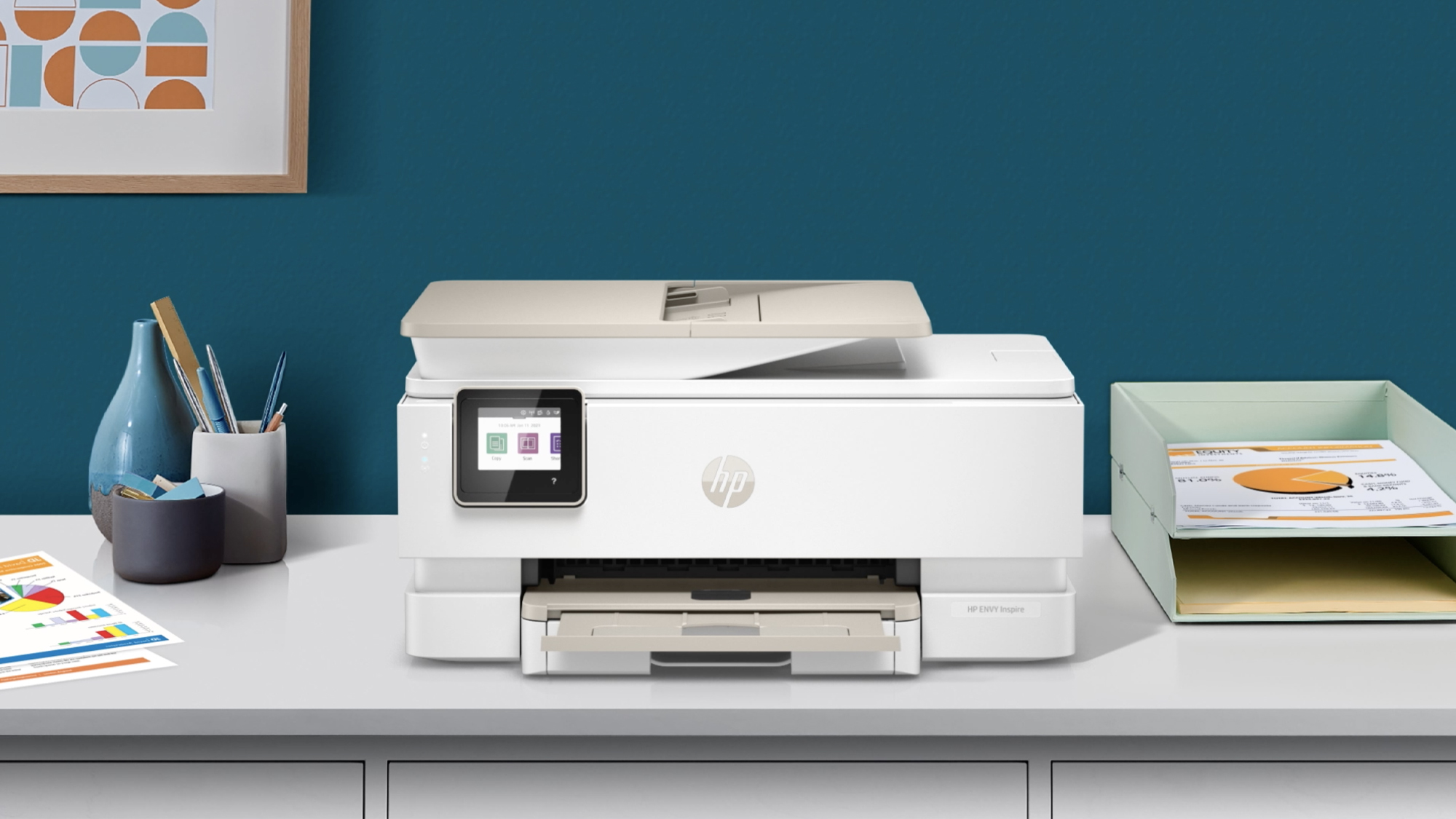
And, don't forget about setup and software. The HP Envy Inspire 7955e ($270), for example, proved difficult to set up wirelessly, and its accompanying HP Smart software posed some frustrating limitations.
Not all software packages and mobile phone apps are equal. One feature I found lacking in quality is a copy feature I first tested in the iOS HP Smart app—but it's really just taking a photo and then printing the result. The Canon iOS Print app offers this same feature, with only passable results. But if you buy a single function printer with no scanner bed, it's better than nothing.
One last potential pitfall is scanning software. I've uncovered bad results in the scanning software included with some Brother and Epson models. The issue was with the auto cropping feature—some documents fooled the software into cropping the scan to a small portion of the image. This requires you to manually select a document size. If your document is of an unconventional size, you'll need to select a size larger than your document, and then manually crop the scan yourself.
The bottom line
Finding a printer that's both a bargain and a solid performer is easier than you might think. At Tom's Guide, we break down the pros and the cons, uncover the weaknesses, and highlight the strengths. I spend hours running printers through all the tasks that make offices run and printing photos fun.
We also spell out the ink costs so you don't learn an expensive lesson the hard way. But be sure to gauge your print volume. If you only print a modest amount, spending a lot of money for really low costs per page may not pay off for a really long time.
More from Tom's Guide
- How to find the best cheap printer money can buy
- My favorite new to Netflix movies that you should watch
- These are the best Canon printers around right now
Eric Butterfield is a freelance writer and musician from California. His work has appeared in PC World magazine, CNET, Taproot, and Alter Action — plus Tom's Guide, of course — while his music has appeared in more than 260 TV show episodes for major networks such as NBC, Hulu, BBC America, and more. You can check out his work on Spotify.
